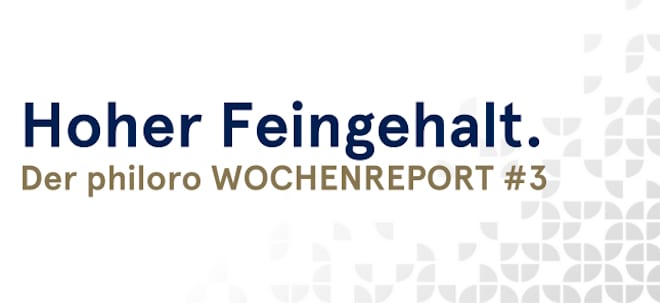Universities Space Research Association's Council of Institutions Elects New Members to the Board of Trustees
Three distinguished leaders bring diverse expertise to guide the Association's mission in space science and technology
WASHINGTON, May 9, 2025 /PRNewswire/ -- Universities Space Research Association (USRA), a nonprofit organization of 121 member universities chartered to advance space science and technology, today announced the election of three new members to its Board of Trustees:
- Dr. James Garrison, Trustee for Region VI
- Dr. Moriba Jah, Trustee for Region VII
- Dr. Vernon Morris, Trustee for Region VIII
Elected by USRA's Council of Institutions, comprised of 121 University members, the new Trustees bring a wealth of experience across academia, space research, and innovation.
"We are thrilled to welcome Drs. Garrison, Jah, and Morris to the USRA Board of Trustees," said Dr. Elsayed Talaat, President and CEO of USRA. "Their deep expertise and visionary leadership will be invaluable as we advance our mission in the rapidly evolving space science and technology landscape."
The USRA Board of Trustees plays a vital role in guiding the Association's strategic direction, ensuring sound governance, and supporting USRA's collaborative efforts with government, academia, and industry. They are elected for a term of 3 years and represent each of the 10 geographical regions of USRA's member universities.
Dr. James L. Garrison
School of Aeronautics and Astronautics
Purdue University
James L Garrison is a Professor in the School of Aeronautics and Astronautics at Purdue University with a courtesy appointment in the School of Electrical and Computer Engineering and the Ecological Sciences and Engineering Interdisciplinary programs. Prior to his academic position, Prof. Garrison was with the National Aeronautics and Space Administration (NASA), first at the Langley Research Center and later at the Goddard Space Flight Center.
His research interests include remote sensing using Global Navigation Satellite Systems (GNSS) and signals of opportunity. As the Principal Investigator for SNOOPI, Prof. Garrison led an inter-center (JPL and Goddard) NASA technology mission that provided the first demonstration of reflectometry with P-band (240-380 MHz) signals of opportunity. This new technique may enable the first global mapping of sub-surface soil moisture with applications in agriculture and wildfire risk modeling.
Prof. Garrison has a long history of leadership and service to Purdue and the broader research community- in many leadership positions. At present, he serves on the Remote Sensing Technical Committee (RSTC) of the American Geophysical Union (AGU) Hydrology Section (since 2024).
Prof. Garrison is a fellow of the IEEE and the Institute of Navigation (ION). From 2018 to 2022 he was the Editor-in-Chief of IEEE Geoscience and Remote Sensing Magazine and in 2024 he was selected as a distinguished lecturer for the IEEE Geoscience and Remote Sensing Society. He has published 54 peer reviewed journal articles, given 242 conference presentations and holds 7 U.S. patents.
Prof. Garrison earned a PhD from the University of Colorado Boulder in 1997 and holds a BS from the Rensselaer Polytechnic Institute and an MS from Stanford University.
Dr. Moriba K. Jah
Professor of Aerospace Engineering & Engineering Mechanics
University of Texas at Austin
Professor | Space Environmentalist | Celestial Steward
Dr. Moriba K. Jah is a globally recognized expert in decision intelligence, astrodynamics, and space environmentalism, with a career spanning academia, government, and industry. His research is broadly focused on decision intelligence leveraging agentic AI and knowledge graph technology, applied to sustainability and social justice issues on Earth and in space.
He is a Professor of Aerospace Engineering & Engineering Mechanics at The University of Texas at Austin, where he holds the Mrs. Pearlie Dashiell Henderson Centennial Fellowship in Engineering. As Chief Scientist at Privateer and Orbital Insight, Dr. Jah is pioneering AI-driven approaches to space object behavior modeling, space traffic management, orbital sustainability, and earth observation data fusion and analytics. He is also a co-founder of GaiaVerse Ltd., advancing causal inference and knowledge curation to empower data-driven planetary stewardship.
A MacArthur Fellow and National Geographic Explorer, Dr. Jah has been a key advisor on U.S. and international space policy, providing expertise to NASA, the United Nations, NATO, and the U.S. Congress on matters of space governance, sustainability, and responsible satellite operations. Prior to academia, he was a Spacecraft Navigator at NASA's Jet Propulsion Laboratory (JPL) and led space situational awareness programs at the Air Force Research Laboratory (AFRL).
Dr. Jah is an International Member of Scotland's National Academy of Science, the Royal Society of Edinburgh, as well as a Fellow of the International Academy of Astronautics (IAA), the American Institute of Aeronautics and Astronautics (AIAA), the American Astronautical Society (AAS), and the Explorers Club. His thought leadership has been featured in CNN, BBC, The New York Times, National Geographic, and Bloomberg.
A TED Fellow and vocal advocate for diversity, equity, and inclusion in STEM, Dr. Jah integrates Traditional Ecological Knowledge (TEK) into space sustainability. He is dedicated to ensuring that space remains a shared and sustainable resource for future generations.
Dr. Vernon Morris
Foundation Professor & Associate Dean, Knowledge Enterprise and Strategic Outcomes
New College of Interdisciplinary Arts and Sciences
Arizona State University
Dr. Morris is a Foundation Professor and Associate Dean of Knowledge Enterprise and Strategic Outcomes in the New College of Interdisciplinary Arts and Sciences at Arizona State University. He holds appointments as a Senior Sustainability Scientist in the Julie Ann Wrigley School of Sustainability, an Affiliate Faculty in the School of Earth and Space Exploration (SESE), and an Associate Scientist in the Center for Gender Equity in Science and Technology (CGEST). He was recently recognized with the inaugural (2024) Stanlee James Legacy award, an honor for outstanding contributions to the advancement of social justice, inclusion, and community engagement.
Dr. Morris is a geophysical scientist whose current research focuses on two environmental regimes: the tropical Atlantic Ocean and the densely populated urban zones in the United States, in sub-Saharan Africa, and in the Philippines. He has led 28 observational field campaigns in seven countries and in three ocean basins over the past 25 years. One of his multi-year field campaigns, the AERosols and Ocean Science Expeditions (or AEROSE) has led to the generation of the most extensive set of in situ observations of the Saharan Air Layer in the tropical Atlantic. These data have been used for improved satellite retrievals of ocean properties; data assimilation for hurricane and tropical storm forecasts; validation of NOAA, US Department of Defense, and European numerical weather prediction models; and improved parameterizations for atmospheric chemistry models.
Dr. Morris has published over 80 refereed publications, book chapters, and technical reports and garnered over $75M in research funding as principal investigator. He has served on numerous technical advisory committees and currently serves on the National Science Foundation Committee on Equal Opportunities in Science and the National Climate Security Roundtable. Other recent recognitions include the 2020 American Geophysical Union Presidential Citation for Science and Society, a 2022 Flinn Foundation Distinguished Scholar, and the 2023 AGU Lifetime Achievement Award for Diversity and Inclusion.
Dr. Morris is passionate about broadening the participation and success of racialized and marginalized groups in science, technology, engineering, and mathematics (STEM).
About USRA Governance
USRA governance is grounded in the university community. USRA is an association of 120 universities engaged in space- and aeronautics-related research and education. University representatives compose the Council of Institutions. The Council establishes the corporate bylaws and conducts elections for members of the Board of Trustees. The Board has sixteen members including ten regional trustees (one for each of ten geographic regional groups of universities), four at-large trustees, the Chair of the Council of Institutions, and the President and CEO (who is appointed by the Board).
About USRA
Universities Space Research Association operates scientific institutes and facilities and conducts other major research and educational programs under federal funding. USRA engages the university community and employs in-house scientific leadership, innovative research and development, and project management expertise.
Founded in 1969, under the auspices of the National Academy of Sciences at the request of the U.S. Government, the Universities Space Research Association a nonprofit corporation chartered to advance space-related science, technology, and engineering.
More information about USRA is available at www.usra.edu.
PR Contact:
Suraiya Farukhi
sfarukhi@usra.edu
443-812-6945
![]() View original content to download multimedia:https://www.prnewswire.com/news-releases/universities-space-research-associations-council-of-institutions-elects-new-members-to-the-board-of-trustees-302451107.html
View original content to download multimedia:https://www.prnewswire.com/news-releases/universities-space-research-associations-council-of-institutions-elects-new-members-to-the-board-of-trustees-302451107.html
SOURCE Universities Space Research Association


